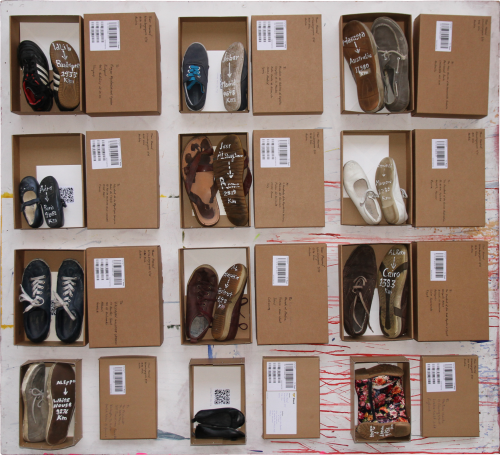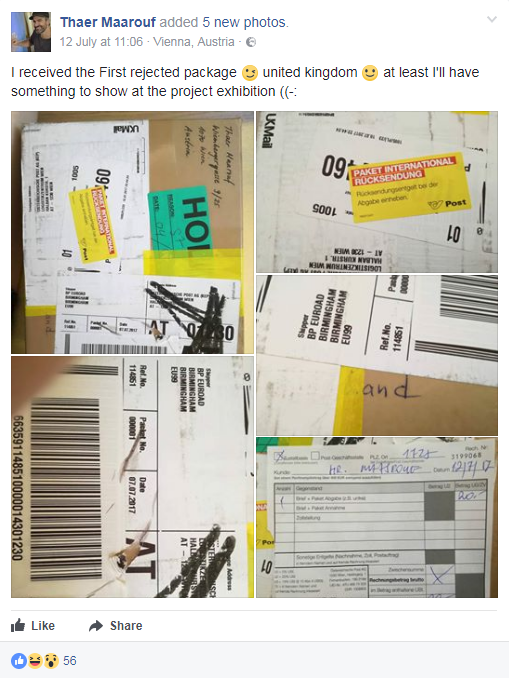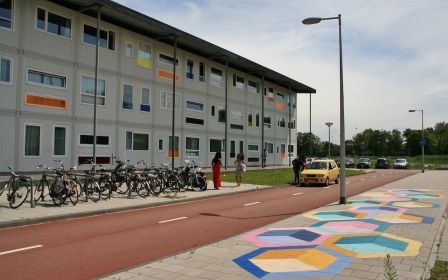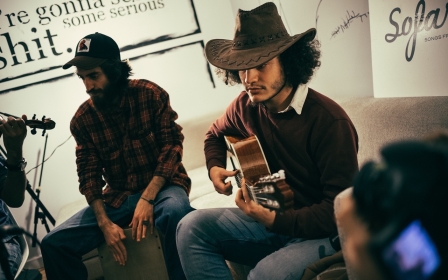'Dirty messages': Syrian uses refugees' shoes as protest to world leaders
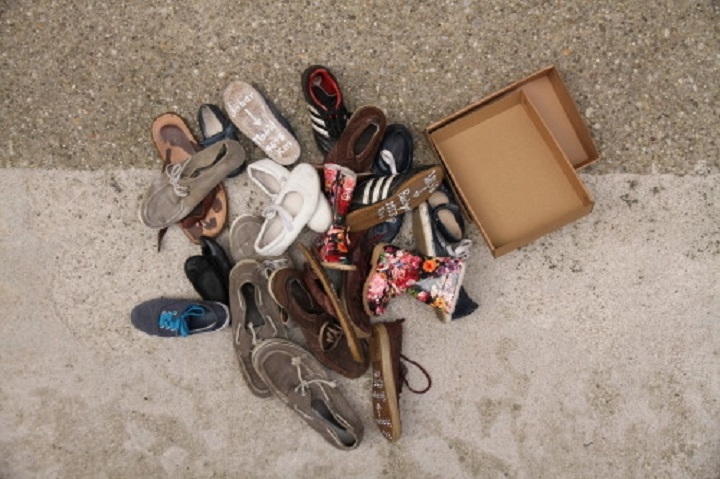
A Syrian artist has sent shoes once belonging to refugees to world leaders in an effort to humanise the millions of people forced from their homes by war.
Thaer Maarouf, who is based in Vienna, marks the shoes with their place of origin and intended destination, then sends them to heads of government in nine countries, including the US president, plus three "random" addresses.
In a letter included in the boxes sent to unknown addresses, he requests that the receiver send the box on again to create an ongoing chain.
Maarouf's aim is to represent the refugees who did not reach their intended destinations.
Maarouf says on his blog that the 'Dirty Messages' project symbolises the "difficult and dusty path" each wearer has crossed to reach safety.
"While the shoes are able to cross boundaries easily, and to reach their destinations without the need to break laws or put themselves in danger, refugees are often faced with insurmountable borders and hurdles," he said.
Maarouf, who arrived in Austria in 2015, told Middle East Eye that the most challenging part of the project was meeting the people who owned the shoes.
Maarouf has already received support from the Spanish government, which sent a letter of thanks which added he could be "sure that we are committed to the work of welcoming and integrating these people".
The package sent to the British prime minister, Theresa May, was however refused delivery without reason and returned to sender. Maarouf had to pay the fee for it to return to Vienna himself.
The 'Dirty Messages' project is the subject of a display in Vienna until the end of September, and will also be exhibited at the Ayyam Gallery in Dubai next year.
Middle East Eye propose une couverture et une analyse indépendantes et incomparables du Moyen-Orient, de l’Afrique du Nord et d’autres régions du monde. Pour en savoir plus sur la reprise de ce contenu et les frais qui s’appliquent, veuillez remplir ce formulaire [en anglais]. Pour en savoir plus sur MEE, cliquez ici [en anglais].


